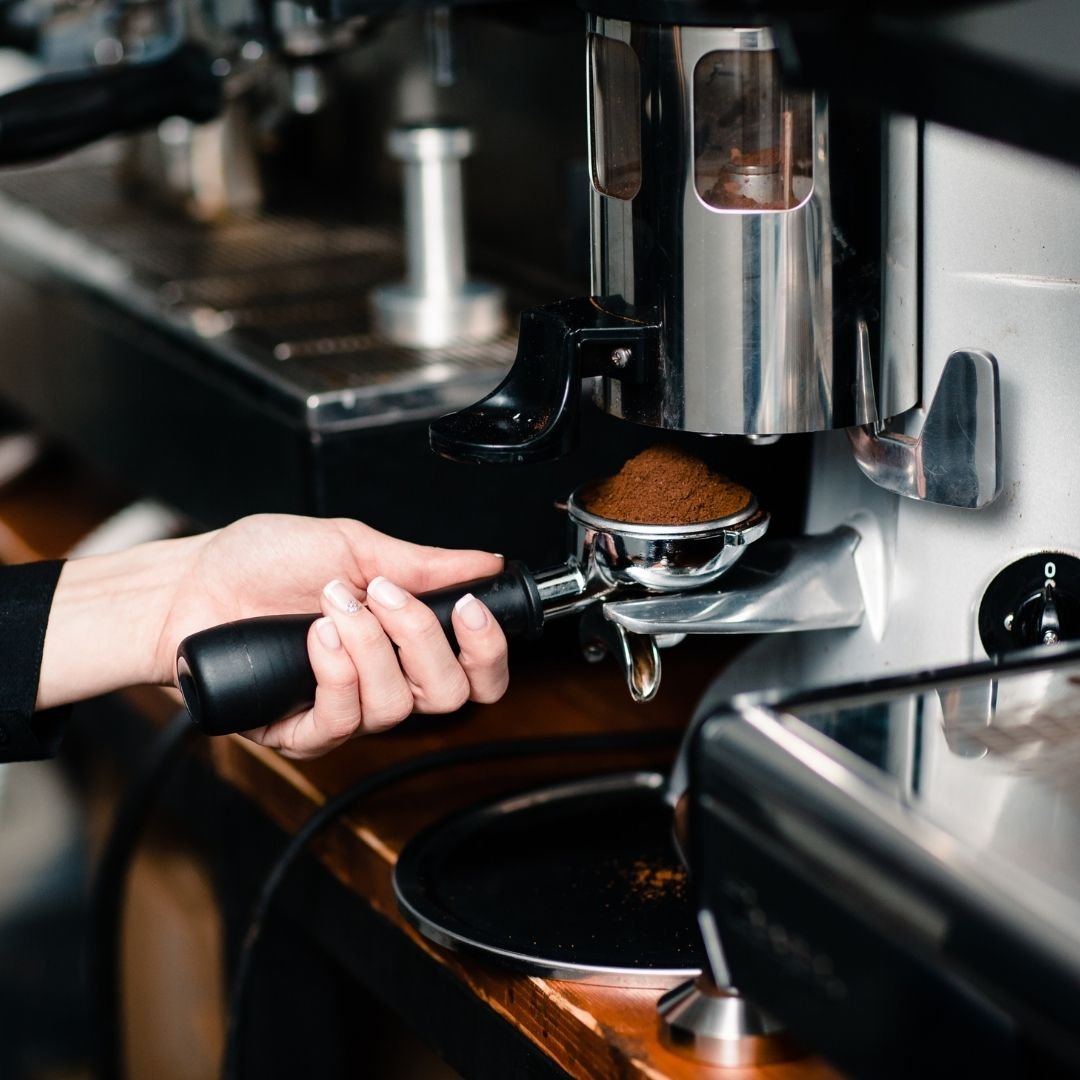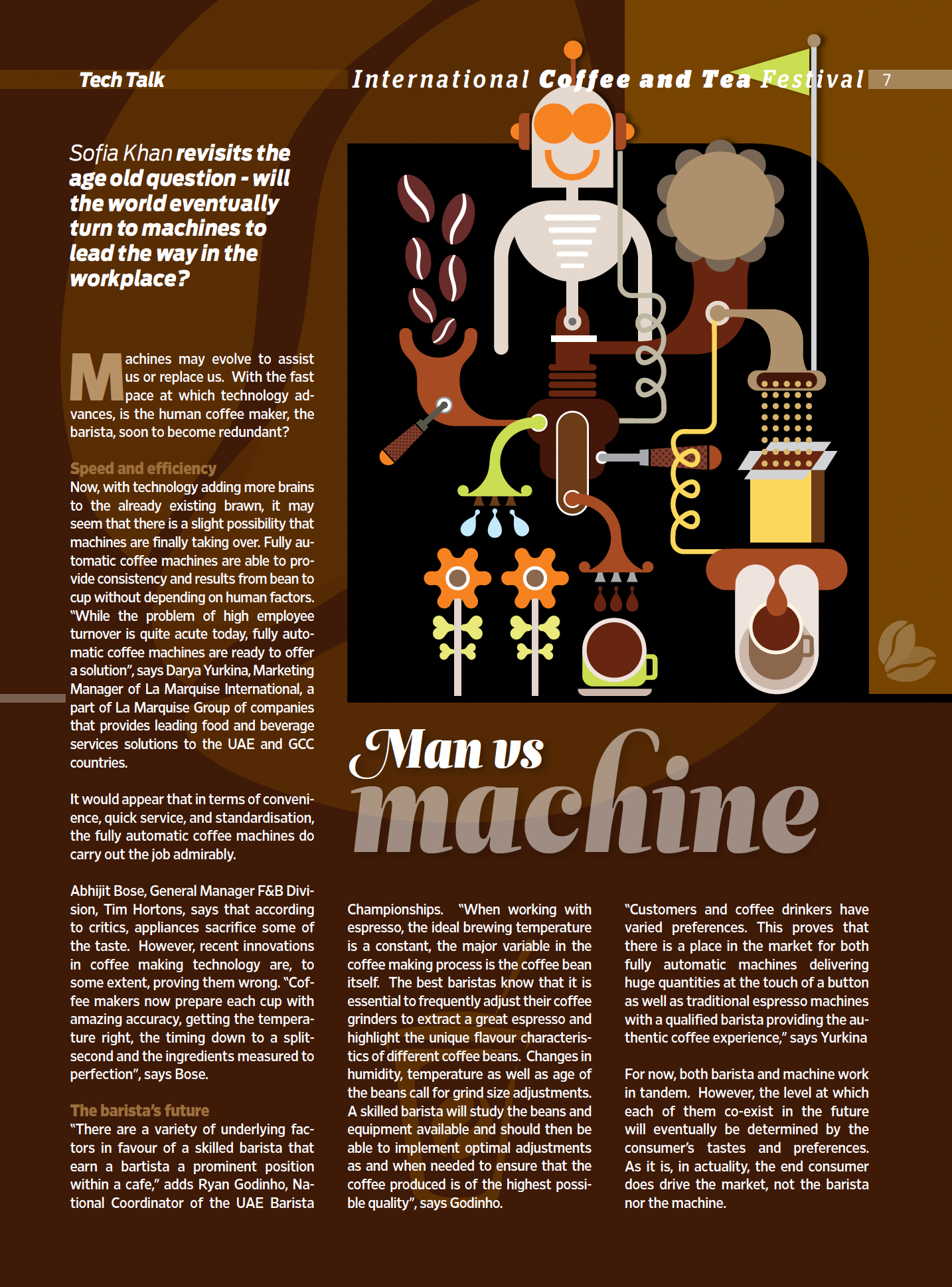TechTalk: Man versus Machine
Sofia Khan revisits the age old question – will the world eventually turn to machines to lead the way in the workplace?

Machines may evolve to assist us or replace us. With the fast pace at which technology advances, is the human coffee maker, the barista, soon to become redundant?
Speed and efficiency
With technology adding more brains to the already existing brawn, it may seem like machines are finally taking over. Fully automatic coffee machines now provide consistency and results from bean to cup without the need for human intervention.
“While the problem of high employee turnover is quite acute today, fully automatic coffee machines are ready to offer a solution”,
says Darya Yurkina, Marketing Manager of La Marquise International, a part of La Marquise Group of companies that provides leading food and beverage services solutions to the UAE and GCC countries.
In terms of convenience, quick service, and standardization, the fully automatic coffee machines do carry out the job adequately.
Abhijit Bose, General Manager F&B Division, Tim Hortons, says that according to critics, appliances sacrifice some of the taste. However, recent innovations in coffee making technology are, to some extent, proving them wrong.
“Coffee makers now prepare each cup with amazing accuracy, getting the temperature right, the timing down to a split-second and the ingredients measured to perfection,”
says Bose.
The barista’s future
“There are a variety of underlying factors in favour of a skilled barista that can earn a barista a prominent position in the café”, adds Ryan Godinho, National Coordinator of the UAE Barista Championships. “When working with espresso, the ideal brewing temperature is a constant, the major variable in the coffee making process is the coffee bean itself. The best baristas know that it is essential to frequently adjust their coffee grinders to extract a great espresso and highlight the unique flavour characteristics of different coffee beans. Changes in humidity, temperature as well as age of the beans call for grind size adjustments. A skilled barista will study the beans and equipment available and should then be able to implement optimal adjustments as and when needed to ensure that the coffee produced is of the highest possible quality,” says Godinho.
“Customers and coffee drinkers have varied preferences. This proves that there is a place in the market for both fully automatic machines delivering huge quantities at the touch of a button as well as traditional espresso machines with a qualified barista providing the authentic coffee experience,”
says Yurkina.
For now, both barista and machine work in tandem. However, the level at which each of them co-exist in the future will eventually be determined by consumer tastes and preferences. Ultimately, the end consumer drives the market, not the barista nor the machine.
This article was published in a Gulf News special industry supplement for the International Coffee and Tea Festival in November 2012.

